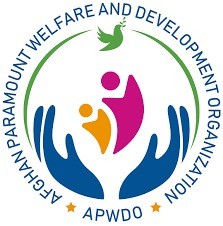WASH
At APWDO, our WASH (Water, Sanitation & Hygiene) programs combat Afghanistan’s water security crisis through engineered solutions and community-led hygiene transformation. We implement comprehensive water access systems, sanitation infrastructure, and behavior change initiatives that align with HRP 2025 standards. Our approach integrates borehole drilling, latrine construction, watershed management, and epidemic-prevention training to break the cycle of waterborne diseases.

we’ve delivered sustainable WASH solutions to 12 provinces since 2010. APWDO has extensive experience implementing diverse and impactful WASH interventions across Afghanistan, focusing on both emergency response and long-term solutions. Our activities have included the procurement and installation of up to 5,000-liter plastic tanks for water trucking, distribution of essential water kits (including jerry cans, buckets, soap, and AquaTabs), conducting water quality tests (both physical and bacteriological), and delivering community training on water safety plans. We have also constructed emergency latrine and bathing facilities using tarpaulin structures in line with WASH Cluster guidelines, dislodged household dry latrines, distributed family hygiene kits, and conducted widespread hygiene promotion campaigns. Additional efforts include the installation of mobile handwashing stations and disinfection of public spaces using chlorine spraying. reaching rural, urban, nomadic, and school-based populations in more than 05 provinces. From sustainable infrastructure like solar-powered boreholes and piped networks to emergency hygiene support for displaced or disaster-affected communities, APWDO’s WASH programming has consistently prioritized access, dignity, and community resilience.
Recently in 2024 APWDO has collaborated with OWACK (Organization for Afghan Women Capacity and Knowledge) and SHPOUL (Sound Humanitarian, Participatory & Organizational Uplift) in delivering integrated WASH and community development programs. These partnerships have enabled APWDO to:
- Leverage combined expertise in water resource management, sanitation infrastructure, and community engagement.
- Expand WASH services to more underserved areas, including remote and conflict-affected regions.
- Ensure gender-sensitive WASH interventions, particularly benefiting women, children, and marginalized groups.
- Implement capacity-building programs for local authorities and community-based organizations to sustain WASH services beyond project completion.

Women-led hygiene training using illustrated Dari manuals in Balkh
Our implementation centers on community ownership and climate resilience. We partner with provincial water authorities, train local water management committees, and engage religious leaders in hygiene promotion. Female hygiene trainers conduct culturally sensitive sessions using visual aids translated into local dialects, ensuring knowledge retention. During the 2024 floods, our pre-positioned emergency WASH kits in 8 provinces enabled rapid cholera prevention for 14,000 displaced families through coordinated cluster response.
APWDO’s WASH initiatives build long-term resilience beyond infrastructure. In Samangan, we constructed flood-resistant bridges that restored year-round market access for 500 families while preventing water contamination from animal crossings. Our solar-powered water systems in Kunar and Badghis now serve dual purposes—providing clean drinking water while supporting kitchen gardens for dietary diversity. These integrated solutions have transformed water from a source of conflict into a catalyst for economic growth in 8 drought-prone districts.

Solar-powered water tank and hand pump

APWDO engineer inspecting new well construction in Jawzjan village
Strategic donor partnerships enable continuous innovation: mobile water-testing labs deploy within 48 hours of contamination reports, ,. Adhering to SPHERE standards, we maintain 90% local staff participation and real-time KoBoCollect monitoring. Each project’s lessons refine our flood-resistant designs and community maintenance models, ensuring lasting impact across Afghanistan’s evolving climate landscape

